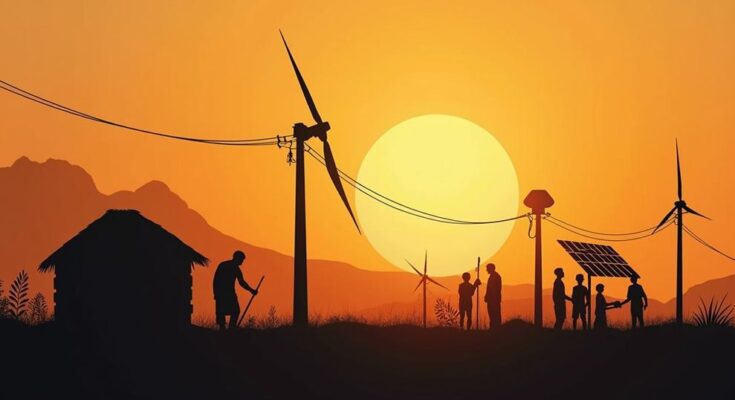Solar power companies in Africa are rapidly expanding to provide electricity to the 600 million individuals who lack it, particularly in Central and West Africa. These enterprises offer a range of products from basic lamps to sophisticated home systems, addressing the dire energy crisis in regions with some of the world’s lowest electrification rates. Examples include Easy Solar in Sierra Leone and Altech in the Democratic Republic of the Congo, which are making significant strides in improving access to reliable energy.
The emergence of solar power companies in Africa, particularly in Central and West Africa, has displayed impressive growth, addressing the pressing issue of electricity access in regions where approximately 600 million individuals remain without reliable power. Operating primarily in areas disconnected from the electrical grid, these companies provide a range of solar products, from affordable solar lamps costing under twenty dollars to more sophisticated home systems designed to power larger appliances such as televisions and kitchen devices. In West Africa specifically, only 8% of the population has electricity access, leading many to rely on costly and hazardous fuels like kerosene, which pose serious health and safety risks due to toxic fumes and fire hazards. The United Nations climate summit has set ambitious goals for renewable energy, aiming to triple global capacity by 2050. Although Africa contributes minimally to global carbon emissions, solar energy represents a viable and cost-effective solution for providing electricity. The International Energy Agency has indicated that while small and medium-sized solar enterprises are effectively bringing power to many homes, substantial investment is essential to achieve universal electrification across the continent by 2030. In Sierra Leone and Liberia, Easy Solar stands as a prominent example of local innovation. Founded by Nthabiseng Mosia and a partner, Easy Solar launched in 2016 and quickly scaled its operations to deliver solar power to over a million people. Mosia remarked on the lack of large-scale solar initiatives in the region before their entry into the market, stating, “There wasn’t really anybody doing solar at scale. And so we thought it was a good opportunity.” Meanwhile, Altech, a solar company operating in the Democratic Republic of the Congo, has similarly emerged as a leader. Founded by Washikala Malango and Iongwa Mashangao, who were deeply influenced by their experiences growing up in a refugee camp, Altech has expanded its services throughout the country. Malango noted the transformative impact of their services, stating, “For the majority of our customers, this is the first time they are connected to a power source.” The contribution of these companies is significant, providing stable power solutions to communities previously dependent on unreliable sources of illumination. Their initiatives not only foster economic growth but also aim to provide safe and sustainable energy alternatives in areas characterized by energy poverty.
The situation regarding electricity access in Africa is dire, especially in Central and West Africa, where large segments of the population remain unconnected to the electricity grid. As the continent grapples with inadequate infrastructure and the exacerbating effects of climate change, solar energy has emerged as a powerful tool to address energy poverty. International entities such as the World Bank and the International Energy Agency emphasize the urgency of expanding renewable energy sources to achieve universal electricity access. Solar power companies, predominantly local enterprises, are playing a pivotal role in bridging the electrification gap by offering a variety of solar products to meet the needs of underserved communities.
The ongoing growth of solar power companies in Africa is a compelling response to widespread energy poverty. With substantial numbers of individuals lacking access to reliable electricity, these enterprises are leveraging solar technology to provide affordable and sustainable energy solutions. Through innovative business models and a commitment to reach underserved populations, companies like Easy Solar and Altech exemplify the transformative potential of renewable energy in enhancing the quality of life for millions of Africans. Continued investment and support will be critical for achieving the broader goal of universal electrification by 2030.
Original Source: www.washingtonpost.com




